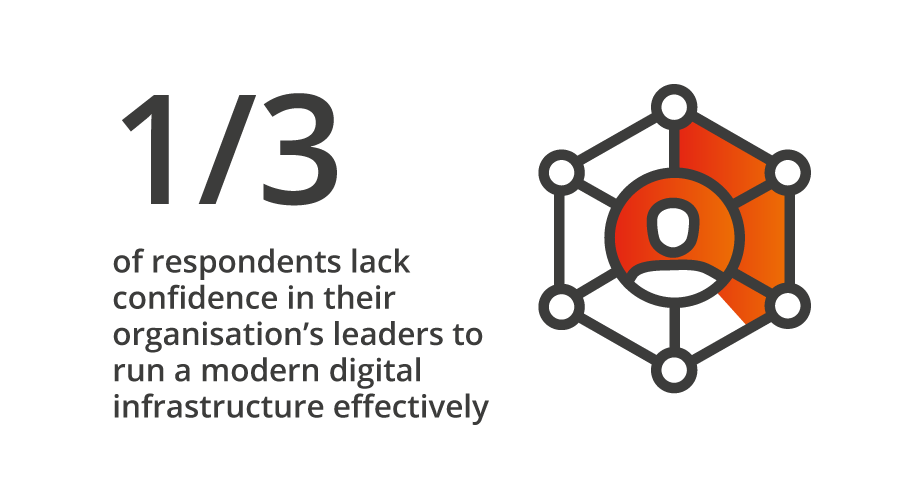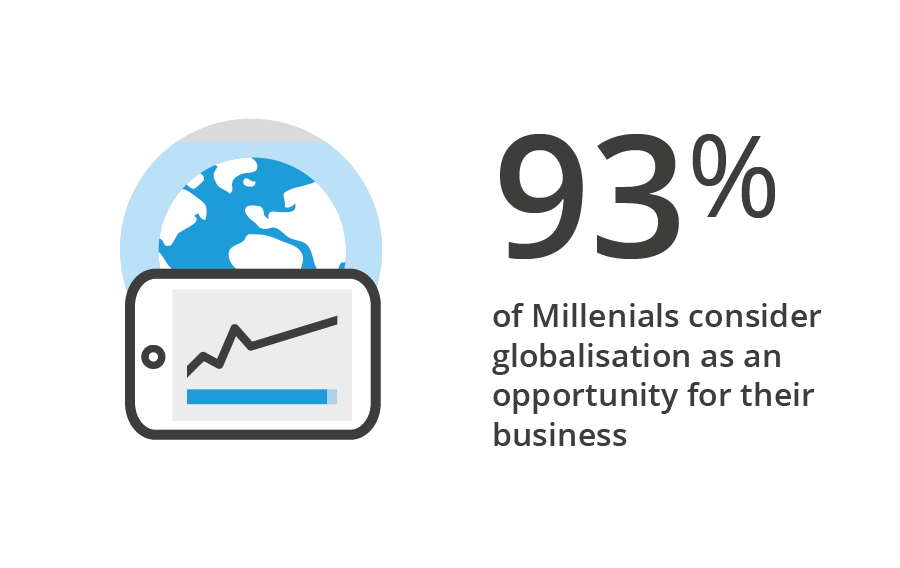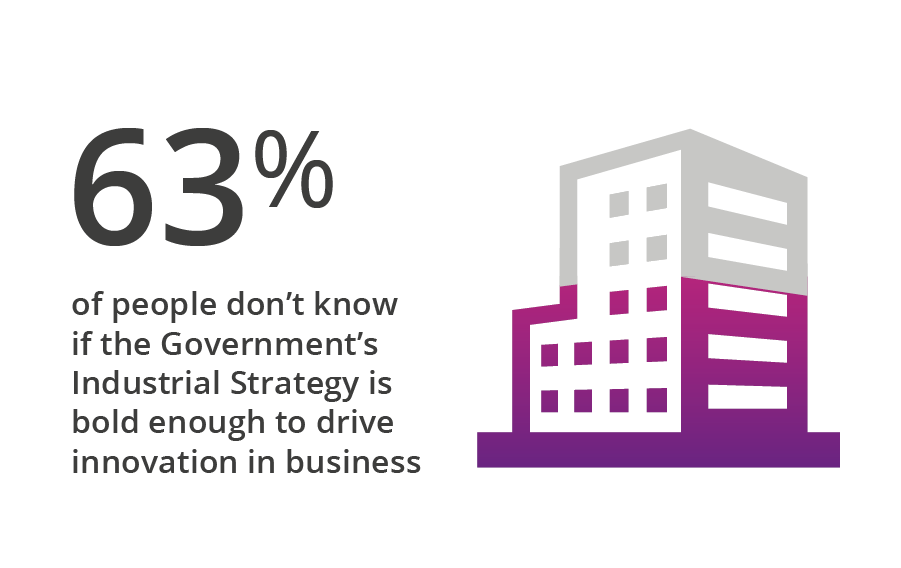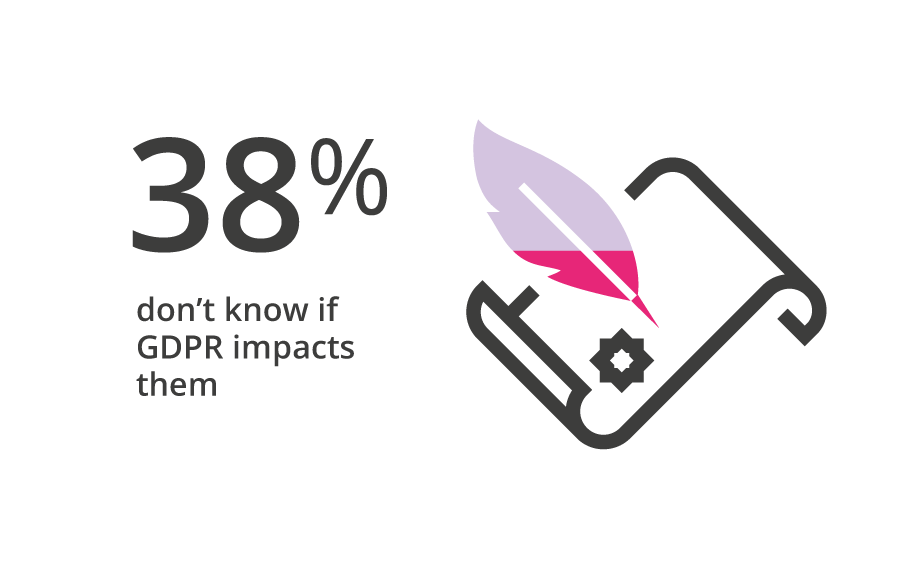General Data Protection Regulation (GDPR)
New this year, we asked about how the impending GDPR, that comes into force in May 2018, will affect businesses, and indeed how many respondents thought it was relevant to them.

Do you believe your business will be ready for the new GDPR regulations by May 2018?
Despite the looming deadline of the GDPR, a worrying 25% of respondents revealed they were either unsure or not confident their organisation is going to be ready for the deadline, highlighting another significant risk to businesses in 2018. The recent horrifying data breach at Equifax in the USA, affecting 143 million people, means they could have been fined US$124m if they were subject to the GDPR regulations.
So with these big issues gathering pace, are UK organisations embracing digital to help them meet the challenges? Indeed, what constitutes ‘digital’ is itself evolving. One of the transformative technologies that is now an essential ingredient is the Cloud, a trend which has accelerated over the last twelve months. How are British businesses reacting to the Cloud, and what are the levels of adoption?

Will your company be looking at adopting Cloud-based technology in the future?
Of the respondents that currently do not have a Cloud solution, a third are looking or planning to adopt Cloud technology. This trend was also backed up by our Cloud survey. It was interesting to note that 27% of this Cloud adoption is being driven by leaders within the finance department.
Exploring attitudes to the Cloud a little further, we asked what respondents felt were the top technology trends for this year, where Cloud was one of several options.

How confident are you that your business has a connected, organisational-wide view of its business-critical data?
Although over one third (35%) still lack confidence in a connected view of data, there are encouraging signs, with an increase of 3% of respondents feeling ‘very confident’ and two thirds (65%) claiming to be either ‘confident’ or ‘very confident’ in having an organisational-wide view of critical data. When looking at the businesses that are confident, there are some positive trends towards real-time data. We asked those respondents a further question to explore this area.
Encouragingly, almost two thirds (62%) claimed that this data is available in real-time, an upwards trend from only 50% in 2016. And whilst there is a 10% improvement in the availability of real-time data, there’s also a downwards trend in organisations using data older than one month, with only 5% of businesses admitting to this - down from nearly 10% in 2016.

















